Fall is synonymous with pumpkins, squashes and gourds. The orange, green and tan-colored beauties are abundant at local markets and roadside stands and make an ideal decorative accent for tabletop or porch. Their rich flesh can also be used in hearty soups and desserts. We’ve rounded up nine varieties for a look at their distinguishing characteristics.
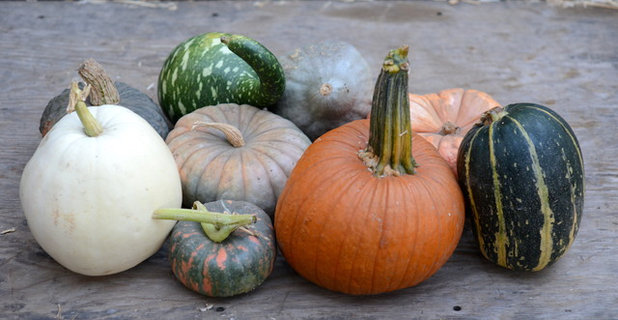
Janet Paik
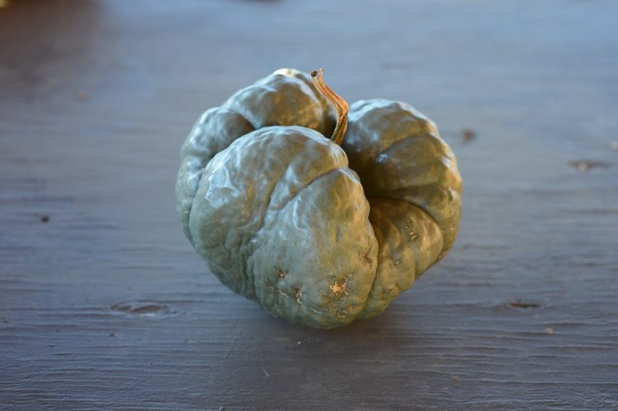
Janet Paik
Name: Triamble (also known as Shamrock, Tristar, Triangle),
Cucurbita maxima. Origins: Sydney, Australia, as early as 1918.
Distinguishing visual traits: Unusual bluish-gray-skin and triangular lobes.
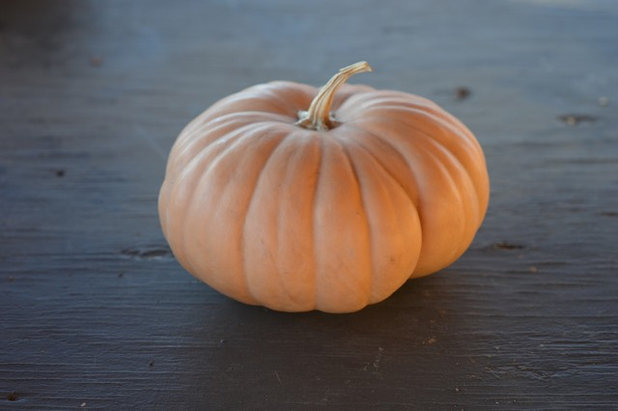
Janet Paik
Name: Long Island Cheese,
Cucurbita moschata.Origins: East Coast heirloom long remembered as a great pie squash by people in New York and New Jersey. Introduced in 1807 by Bernard McMahon of Philadelphia.
Distinguishing visual traits: Smooth and medium- to large-ribbed skin, flattened just like a wheel of cheese. Slender woody stem and butternut-like color. Plants have vigorous vines and heavy leaf cover.
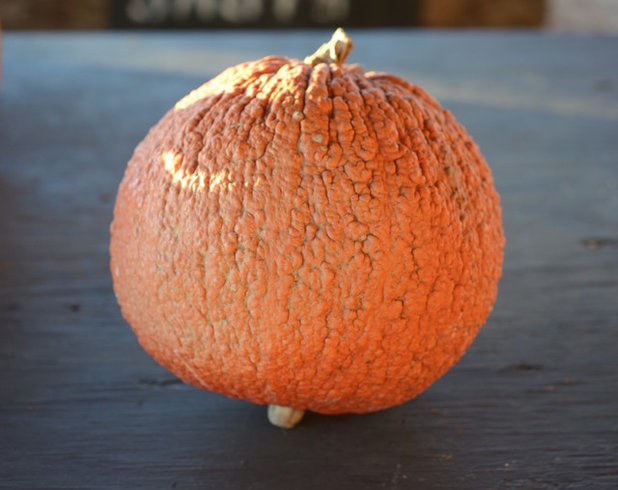
Janet Paik
Name: Red Warty Thing,
Cucurbita maxima.Origins: Marblehead, Massachusetts, in 1897.
Distinguishing visual traits: The name is truly fitting for this wart-covered pumpkin with bright red skin.
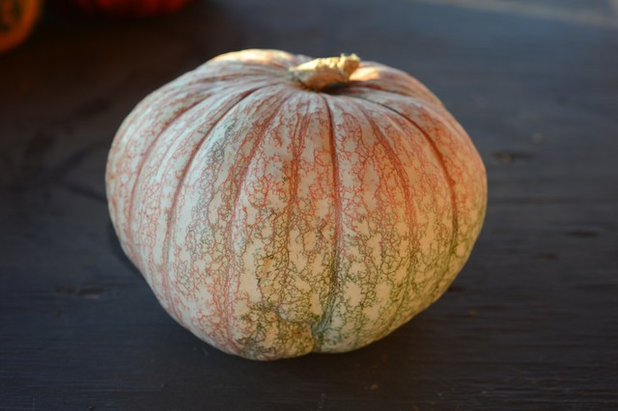
Janet Paik
Name: One Too Many,
Cucurbita maxima. Origins: Developed by Rupp Seeds as a decorative pumpkin.
Distinguishing visual traits: These unusual and round or oblong-shaped ornamental pumpkins can look like a bloodshot eyeball. They have a white background accented with stripey veins and speckles of red.
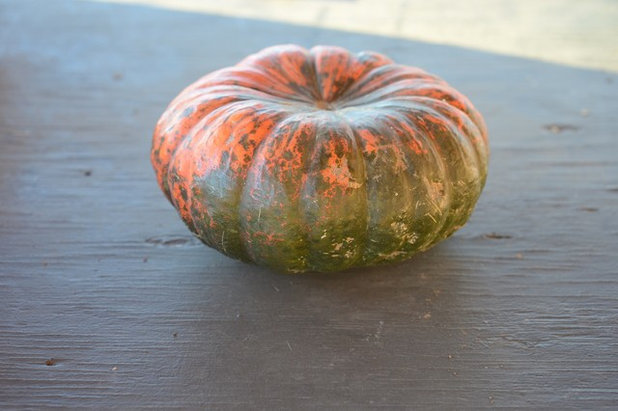
Janet Paik
Name: Cinderella,
Cucurbita maxima.Origin: French heirloom introduced in the United States by W. Atlee Burpee in 1883.
Distinguishing visual traits: It’s easy to see how the softly flattened top and ridged, orange skin could have inspired Cinderella’s carriage in Charles Perrault’s classic French fairy tale.
More: The flesh is prized for its sweet flavor and creamy texture, making it ideal for desserts.
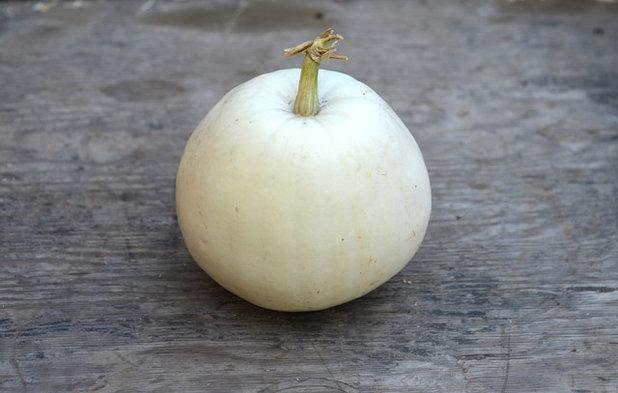
Janet Paik
Name: Lumina,
Cucurbita maxima.Origins: Native to North America, with origins in
Central America.
Distinguishing visual traits: Ghostly white smooth-skin variety is the perfect canvas for painting and carving, especially with its contrasting bright-orange flesh.
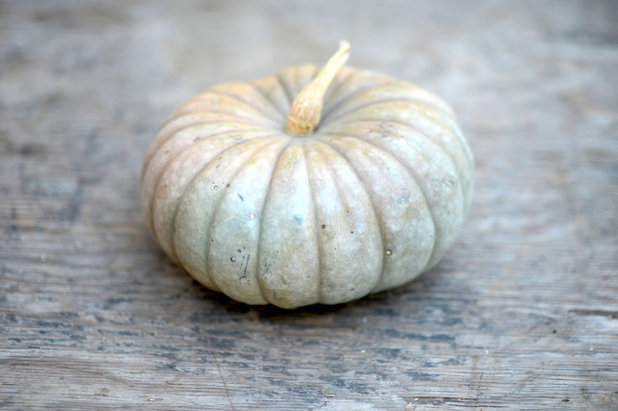
Janet Paik
Name: Jarrahdale,
Cucurbita maxima.Origins: Town of Jarrahdale, New Zealand.
Distinguishing visual traits: Heirloom pumpkin with blue-green skin, firm ribbing and a flattened shape.
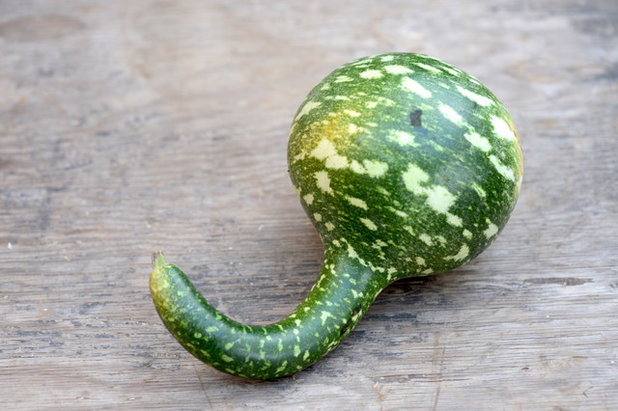
Janet Paik
Name: Gooseneck gourd,
Lagenaria siceraria. (The botanical name is from the word for “flask” in Greek and Latin.)
Origins: Probably North America.
Distinguishing visual traits: The fruit of this gourd has a long neck that resembles the neck and head of a swan.
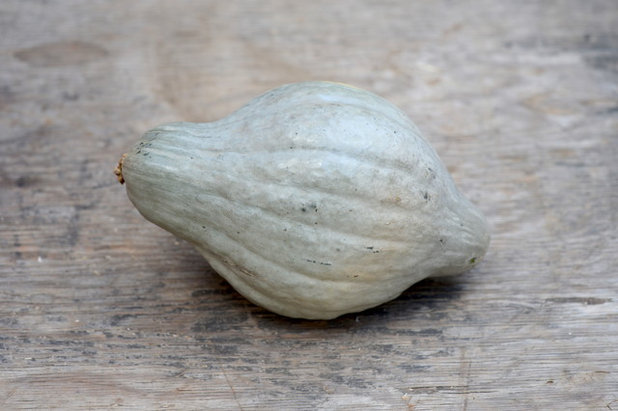
Janet Paik
Name: Blue Hubbard,
Cucurbita maxima.Origins: James H. Gregory introduced this New England kabocha squash variety in 1909.
Distinguishing visual traits: Teardrop shape with bluish-gray skin.
More: The flesh is delicious and smells like fresh cucumber.
These pumpkins were photographed at Spina Farms in San Jose, California, and Webb Ranch in Portola Valley, California.More How to Grow Pumpkins
How to Grow Squash





